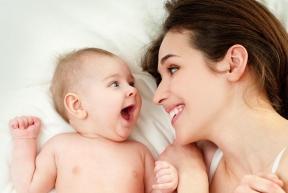
WebMD News from HealthDay
The more babies breast-feed, the less likely it is that they will develop any kind of misalignment in their teeth later on, a new study shows.
But pacifiers can negate some of that potential benefit, even if the children are breast-feeding, the Australian researchers said. “While most benefits of breast-feeding can be attributed to the breast-milk, this study highlights one of the ways that the actual act of breast-feeding imparts its own benefits,” said Dr. Joanna Pierro, a pediatric chief resident at Staten Island University Hospital in New York City.
The researchers, led by Karen Peres at the University of Adelaide in Australia, tracked just over 1,300 children for five years, including how much they breast-fed at 3 months, 1 year and 2 years old. The study authors also asked how often the children used a pacifier, if at all, when the kids were 3 months, 1 year, 2 and 4. About 40 percent of the children used a pacifier daily for four years.
When the children were 5, the researchers determined which of them had various types of misaligned teeth or jaw conditions, including open bite, cross bite, overbite or a moderate to severe misalignment.
The risk of overbite was one-third lower for those who exclusively breast-fed for three to six months compared to those who didn’t, the findings showed. If they breast-fed at least six months or more, the risk of overbite dropped by 44 percent.
Similarly, children who exclusively breast-fed for three months to six months were 41 percent less likely to have moderate to severe misalignment of the teeth. Breast-feeding six months or longer reduced their risk by 72 percent.









